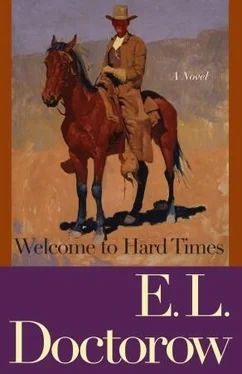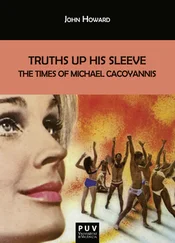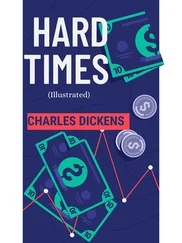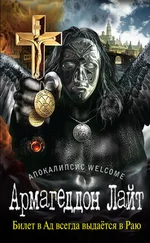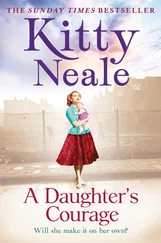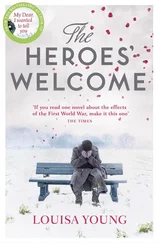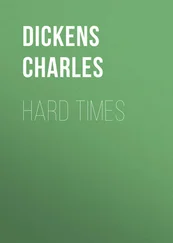“So let us find such a town,” Zar said.
“Well there’s one I know of,” I said, “name of Fountain Creek.”
“Good. We go now.” He stood up. This fellow had a better mind than Avery ever had but it would outrun you with your own intentions. I used to own a horse like that, you spurred him once and you couldn’t hold him.
“Wait on,” I said, “it’s a half day’s travel. You don’t gain anything losing a night’s sleep. We’ll head out at sunup.”
But once it was decided I began to worry the whole idea. It was all too quick for me; glad as I was to be staking out in earnest I couldn’t believe in it altogether, almost against my will I found myself glancing up at the shadows of the rocks. I didn’t like leaving Molly and the boy untended for a day and maybe a night too.
Well I was up and waiting for the dawn. When the first light ran through the sky I went over to the Indian’s shanty. As I feared, John Bear was in no humor to keep a watch out for anyone, he had not come out of his shack since Zar had knocked him down; and I saw him through the door sitting hunched up in front of a dead fire, he was deep in a brood. There isn’t much worse you can do to an Indian than touch him. Bear wore a shirt and britches and he was living in this shack where ten years before he wouldn’t have sat down under a roof — but for all he felt now he might just as well have stayed a blanket Indian.
In the chilly early morning Zar had unloaded his wagon and now he was stripping it down, pulling off the canvas and lifting the struts away. On the ground were trunks, sacks of grain, boxes, a barrel, bedding — he packed a lot in that wagon. The women were up and about, laboring to get it all inside the tent.
“I am soon ready, frand,” he called. I went over to him and told him Bear was in the dumps. He wasn’t too concerned, he said: “The savage will get over it.” I remember those words.
“Well that may be,” I said, “but meanwhile there’s no one here to keep an eye out while we’re gone.”
“So?” He shrugged. I didn’t know what to do, I didn’t want to leave — especially with Molly in the dugout the way she was. But there seemed to be no way out of it. I finally asked around till the tall girl, Jessie, said she had an old dress she might be willing to sell. I offered her the two dollars that pimply boy had given me to post his letter.
“No,” she said, changing her mind, “it’s too good for Madam Bitch in there.”
“Give it him,” Zar said, scowling.
So the exchange was made and I took the frock in to Molly. She was sitting up facing the doorway and she was holding the buffalo robe to her shoulders. Those green eyes in that peaked face made me feel again the queerness, the dismal shame of trying to speak to her. I had to clear my throat.
“Molly, things are going good, these people want to stake out here. I’m going off with the Russian to find a load of wood for building.”
She nodded, she didn’t seem to care.
“Jimmy’ll stay behind,” I said. “And this is a dress.”
It was to plague me for a long time, like this, that I couldn’t tell what she would answer or if I might find a moment’s favor in her eyes. She didn’t say anything till I began to wonder if she’d heard me; and then I saw she was crying, not making a sound, just looking at the ground as if her whole life was laid out in front of her, while the tears ran down her face.
“Molly, it’s a proper dress,” I said. But she wouldn’t take it. “Wear it yourself, Mayor.” She sat there biting her lip and running her hand through her hair. I didn’t know what to answer, so I went back outside with the dress.
Jessie saw me and by the time I reached the tent she and Adah and Mae had stopped what they were doing to gather around me.
“I knew it,” Jessie said, “why she suckles bobcats, she’d do it with a horse, that bitch, the dress is too good for her.”
“I’ll be damned,” Adah said.
“How do you like that Lady Bacon Ass,” Jessie said to Mae, “that’s somethin’ ain’t it?”
“Trouble with that ol’ girl,” Mae said slowly, “she were burned not hardly enough.”
I was scratching the stubble on my chin; and listening to these women made me say something I don’t understand to this day. Maybe I wanted to keep Molly from their scorn; maybe it was just some mournful deviltry in me.
“Molly’s my wife,” I said. I think I was just saying what I knew, that we had been wedded by the Bad Man from Bodie.
Well they looked at me as like struck dumb. I saw a doubt in Jessie’s eye — she may have wondered why I’d left my wife to lie in an Indian’s shack where they found her — but it was gone in a second. I suppose there is nothing that a whore will respect more than a married woman. Those ladies stammered and blushed like virgins, and the next thing I knew Adah had taken me inside the tent, opened her trunk and dug something up from the bottom of it.
“This here’s my wedding dress,” she said to me, “I wore it once only, on my marriage day. Twenty years ago. My husband was a minister. This was his tent, those were his meetin’ chairs, that was his melodeon and I played the hymns for him. I don’t have a ring on m’finger ’cause I’m ashamed to wear it, but you can tell her this dress is clean.”
“Well now Miss Adah—”
“Go on, you take it.” She folded this white dress over my arm. “It’s simple, it will do her fine, poor woman, gettin’ burned that way it’s no wonder she ain’t herself.”
“That’s right,” said Jessie.
“And give him his two dollars Jessie,” Mae said.
“That’s right,” Jessie said and she put the money back into my hand. “Gimme that old dress, it ain’t fit, I ought to bury it.”
“Ladies,” I said, “you are awful kind.” I was doing alright for a liar, but I meant what I said; it should have saddened me how kind they suddenly were except I knew what they might have done to Molly if they’d found she was one of their kind.
When I stepped out of the tent Zar was up on his wagon and his team was in place: “Wal frand,” he called, “I wait.”
“Hold on a minute,” I said. I found Jimmy around at the front of the dugout. He had been up and about for just a few minutes and the sleep was still in his eyes. He was using his fingers to comb the tail of the Major’s pony.
“Jimmy,” I said, “listen to me careful. I’m riding out now to scare up some wood. I want you to give this dress to Molly after I leave. She needs some covering and she’ll take it if you give it to her. While I’m gone I want you to keep the pony hitched to the rig and right by here. If you see any sign of that Bad Man take Molly and light out south to the wagon trails. Do you understand me?”
“Yes.”
“You shouldn’t have any trouble. Just don’t stray, stay close by. Don’t bother the Indian, he’s in the dumps, he might be mean. Eat up those prairie cakes I made. Probably those ladies’ll give you some hardtack if you ask them. Alright?”
“Yes.”
“I’ll be back.” I started off and then I turned back: “If someone asks you how your Ma is feeling, they’ll mean Molly.”
A minute later I was up on the box beside the Russian; he snapped his whip and we skidded off with a clatter. I turned in my seat to look back: no one watched us go but Jimmy; he stood by the dugout staring after us, and as we drew further away and I looked back again he still stood there without moving. I wished I had said something to make him feel better, or maybe tousled his head.
The Russian drove his horses as if he was racing a train, I had to grab the box while the empty wagon swung out one way and then another behind the team. I pointed south and west across the flats and that’s the way we went, rumbling, bumping through the stumped-up dust. It was no situation for any kind of talk but the Russian didn’t know it. He was one of those people proud of himself and his station in life and he shouted out his story as we rolled on under the sun, and he kept up even after the flats gave way to fixed swells of sand, sparsely weeded, that stretched on ahead of the eye like a solid sea. I only half listened, I was thinking of Molly and would she wear that dress. “Frand … I come West to farm … but soon I learn, I see … farmers starve … only people who sell farmers their land, their fence, their seed, their tools … only these people are rich. And is that way with everything … not miners have gold but salesmen of burros and picks and pans … not cowboys have money but saloons who sell to them their drinks, gamblers who play with them faro … not those who look for money but those who supply those to look. These make the money … So I sell my farm … and I think … what need is there I shall fill it … and I think more than picks and pans, more than seed, more even than whiskey or cards is need for Women. And then I meet widow Adah, owner of tent … And I am in business.”
Читать дальше
